ARTICLE AD BOX
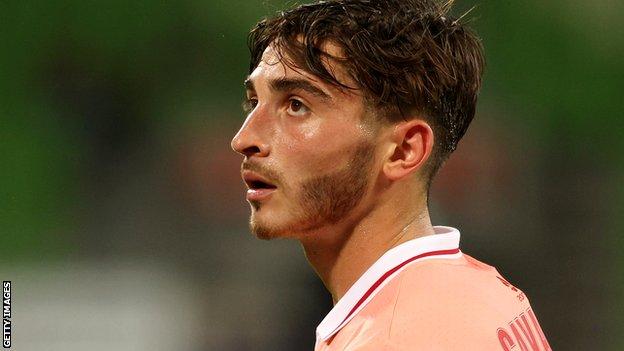 Josh Cavallo made history when he came out last October
Josh Cavallo made history when he came out last October"You won't know me, but I'm struggling and need someone to talk to."
Josh Cavallo's name didn't mean anything to Thomas Beattie when it first appeared in the ex-Hull City academy footballer's inbox - and on the face of it, there was little to link the two men together.
Cavallo was based in Australia, a young professional footballer at the very start of his career, while Beattie was living the life of an entrepreneur in Singapore after a horrific head injury forced him to step away from the game.
But the two men had one thing in common.
Both were gay - and while Beattie had decided to share his sexuality in an online article in 2020, Cavallo wasn't yet out to the world.
"He said he'd read a lot about my story and felt like I was him, just 10 years after," Beattie, 35, tells the BBC's LGBT Sport Podcast.
"So I responded and we ended up talking almost daily. I was excited that he'd had the courage to reach out to me, because without knowing someone, it takes a lot.
"You don't know who they are going to tell, but the fact I'd gone through that process meant he knew I understood the difficulties of it and trusted me with that secret."
In October 2021 - months after he started talking with Beattie - Cavallo created a watershed moment in the world of football when he became the first top-level male professional to come out as gay while still playing.
But without Beattie paving the way, the moment may never have happened.
'I had everything I thought I wanted but was really unhappy'
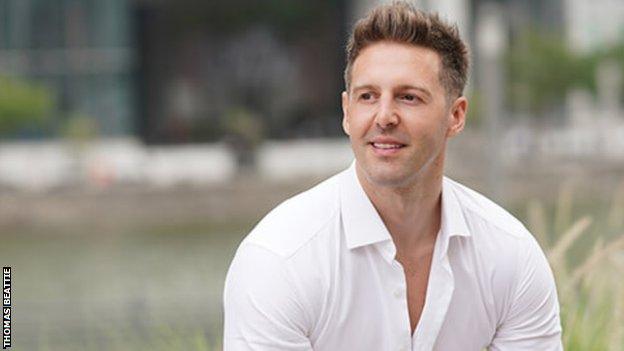 Thomas Beattie played professionally in Canada and Singapore
Thomas Beattie played professionally in Canada and SingaporeThe elements of Beattie's story that resonated with Cavallo will strike a chord with many other gay and bisexual men in sport.
As a young lad growing up in Yorkshire, he was spotted by a local scout who noticed his speed on the ball.
"When you're young and you're quick, you just kick it and run past nine players and you're one-on-one with the goalkeeper," Beattie laughs.
Despite his modesty, he clearly had talent, and offers to sign him came in from clubs in the region. He chose Hull City, only a short drive from his home, and was soon on their bench for academy games, weighing up the possibility of a career as a professional.
"I played because I loved football, but it went from being a game to a business," Beattie says.
"Suddenly, senior pros were in the dressing room, and it was all just a little bit overwhelming. I had everything I thought I wanted, but was just really unhappy and couldn't really pinpoint why it was."
With a year left on his contract, Beattie - with Hull City's full support - was released to go and play in the United States at a collegiate level.
After finding success there, he returned to the UK to trial with Kilmarnock, where he turned down the offer of a professional contract, still unable to shake off a sense of 'otherness'.
"It was super-confusing for me," Beattie says.
"I couldn't really comprehend it, and now I look back and realise that I was scared to be under the spotlight because I was different, and I didn't know what it was."
'It was like a chemical response to the fear'
It was only when he went to play in Asia that Beattie began to understand his feelings.
"I got to a certain age where I'd meet a lot of girls, and it just wasn't like my friends were describing it," he says.
"And it was strange for me, because I'd heard on TV that there were gay people in different industries, but I don't think I would ever allow myself to believe that I was that. It was just so far beyond what I could comprehend.
"I'd got to a point where I just buried it, threw it under a rug and tucked it deep inside me - and it was only when I was playing in Asia that I said in my mind a few times to myself: 'Oh my days, I think I might be gay.'
"And even just saying that to myself, my whole body was tingling, it was on fire, and it was almost like some chemical response to fear or something daunting of: 'Why me?'
"Now I look at it, and it's like my superpower! I love all of myself, every piece of me, but at that time and especially in that environment, I was fearful of being out in that world."
'I wanted to do some good'
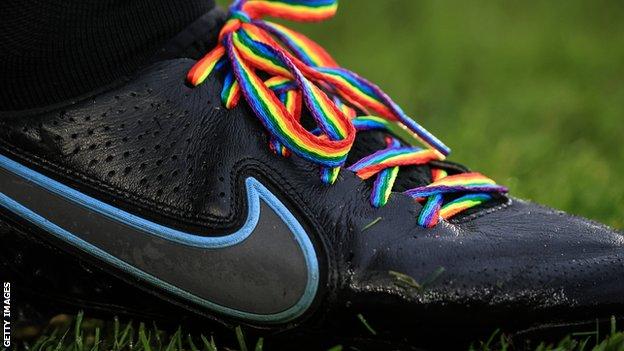 "It was really fulfilling that something so painful for me when I was playing became my purpose"
"It was really fulfilling that something so painful for me when I was playing became my purpose"Beattie maintains that it took the end of his footballing career in 2015, caused by an serious head injury during a game in Singapore, to give him the strength to open up about his sexuality.
"If I hadn't had that injury, I'd probably still be playing now and living in that bubble," he says.
"In football, you're in a world where everyone assumes you can't be gay, and the injury was probably the only thing that was going to take me out of it.
"Because I'd been out of football for a few years when I came out, I was somewhat safe from the fears I had in that environment - of the fans, of society, of coaches.
"I'm blessed that I'm so independent, so I wanted to go through the coming out process to set myself free and do something good with it.
"And it was really fulfilling that something so painful for me when I was playing became my purpose."
'It matters to the 15-year-old guy in the closet'
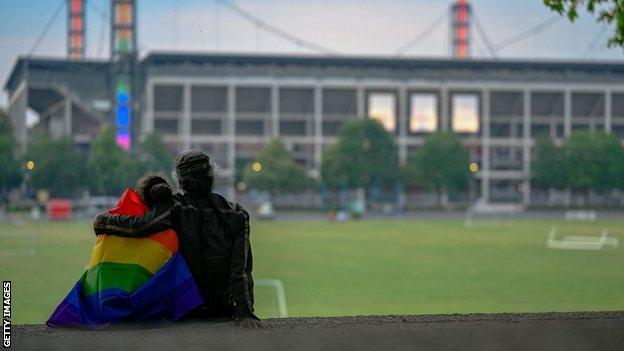 Beattie is certain that having public sporting figures who are open about their sexuality helps others
Beattie is certain that having public sporting figures who are open about their sexuality helps othersCavallo isn't the only man in sport who has come to Beattie for advice since he shared his story with the world in 2020.
"I get a lot of them," Beattie says.
"They're different athletes in different sports. A lot of them don't intend to come out, or they don't want to, or they're not ready. So I'm just trying to be a source of support and friendship."
And, alongside the positives, Beattie has heard the negatives as well - from those on social media and elsewhere who maintain that professional athletes shouldn't be talking about their sexuality.
The idea that, put bluntly, no-one cares if you're gay.
"I think the reality is that someone, somewhere, feels like they're better off dead than for the world to know who they are," Beattie says.
"So if you're a young person and you can look at someone and say 'I'm just like that' or 'I think I'm like them and they've done OK', that gives hope and inspiration and a little bit of guidance to people who are struggling.
"And football is such a talking point and massively influential on culture and society, I think it's a great place to start these conversations and break down these barriers.
"You may get people who say 'why does it matter?', and maybe it doesn't matter to them.
"But they can never really comprehend that it matters to the 15-year-old guy who is in the closet and struggling with his identity.
"So it may not matter to everyone, but it does matter to some - and the reality is it saves lives."
Thomas Beattie was speaking to Jack Murley on the BBC's LGBT Sport Podcast. You can listen to new episodes every Wednesday on BBC Sounds.

 2 years ago
28
2 years ago
28
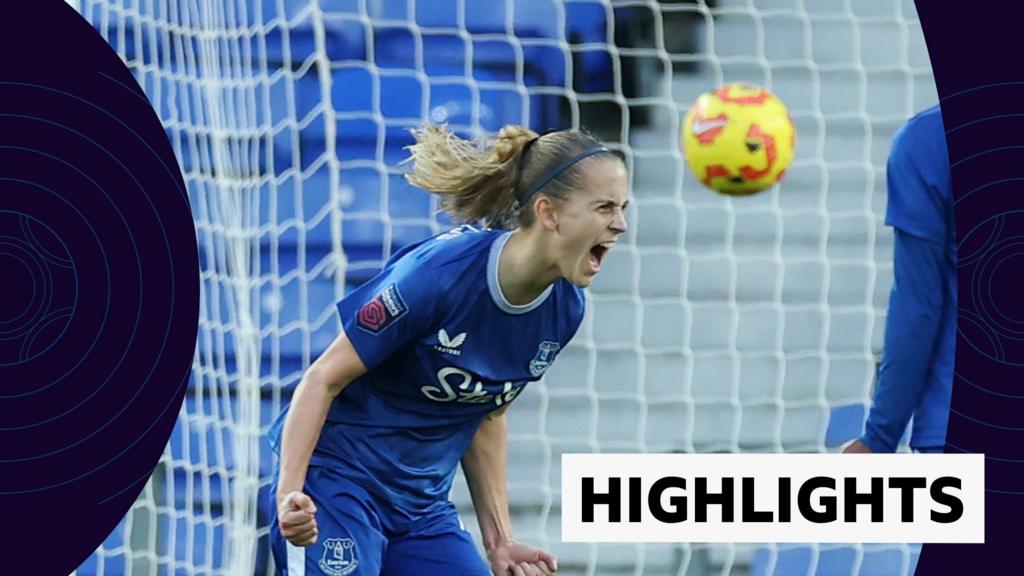

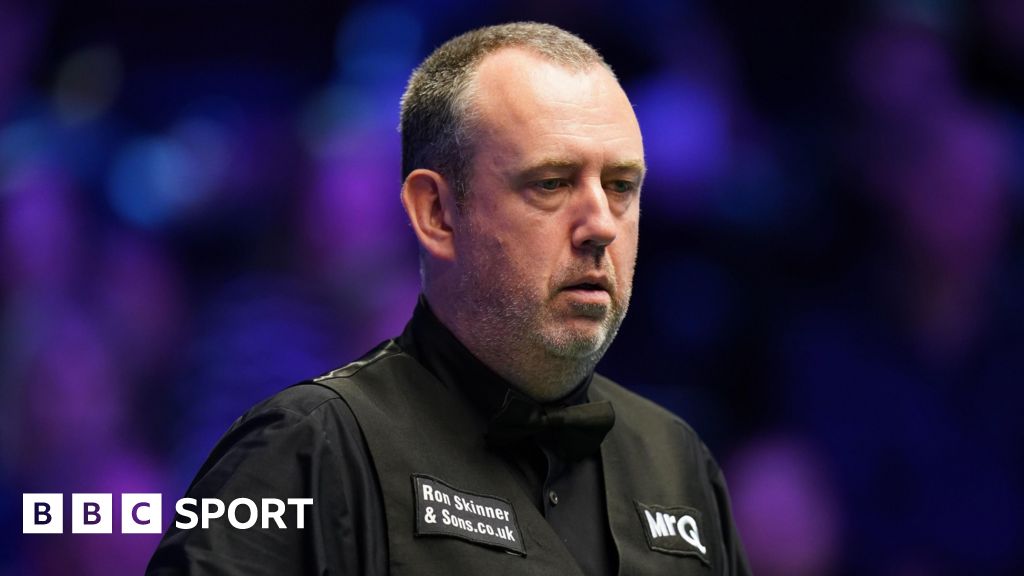





 English (US)
English (US)